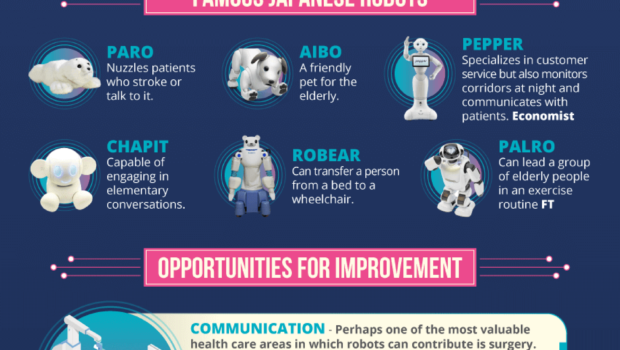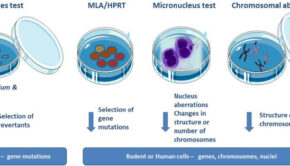The Rise of the Robot [Infographic]
As artificial intelligence (AI) and robotic technologies mature, the idea that machines will replace humans in the workplace enters the mind of many working professionals. The latest crop of innovative AI technologies can learn. In many fields, innovations powered by artificial intelligence can outperform humans. They don’t make mistakes, tire or demand a salary. This may leave some nurses wondering if their careers are at risk.
In the health care profession, nurses may ask, “I wonder if a machine can replace me?” Forward thinkers started speculating about this scenario more than 100 years ago. Philosophers hypothesized that machines would eventually take over human tasks while increasing productivity and profits. While innovations such as artificial intelligence and robotics can never emulate the human qualities of empathy and compassion – at least not for now – these kinds of developments shine a light on the need for nurse practitioners to keep their skills updated.
As robots take over more roles, nurses will assume a new set of responsibilities. What those might be remains to be seen. Soon, however, the impact of the expanding role of robots in the health care setting will be undeniable. Robots now perform a range of activities, from making in-house deliveries to assisting with surgeries. Despite the form of service, it appears that robots are steadily becoming a permanent fixture on the labor landscape.
Health care technology advocates forecast that the proliferation of robots in the medical setting will eventually leave medical professionals free to focus on opportunities for improvement. When this day arrives, it will be more important than ever for nurse practitioners to ensure that they have the highest levels of education and training possible.
Moving forward, nurses must embrace technological change to stake a claim in their control of the future. With the growing emergence of telemedicine and advanced health care technologies, nurses will have to reinvent themselves in the workforce. Tomorrow, nurse practitioners may find themselves fulfilling roles as application developers, data analysts or artificial intelligence specialists. The nursing informatics specialty is already giving nursing professionals an advantage in this regard. It’s possible that this discipline will serve as the foundation that retains the relevancy of the nursing profession in an increasingly technological age. For now, the nursing profession – as a field – has a long way to go to achieve this transformation.
To date, some organizations have yet to focus on increasing the technological skill set of practitioners. This kind of training is costly and time-consuming. Additionally, the nursing talent pool is already taxed without assuming this added responsibility. Therefore, the onus is on practitioners to stay informed and educated about the latest technological innovations. Until the nursing profession becomes incentivized to embrace technology, individual practitioners must take it upon themselves to prepare for a technologically empowered future.
For more information about the robot powered health care environment of the future, click here to view an informative infographic created by Ohio University’s Online Master of Science In Nursing program.
















